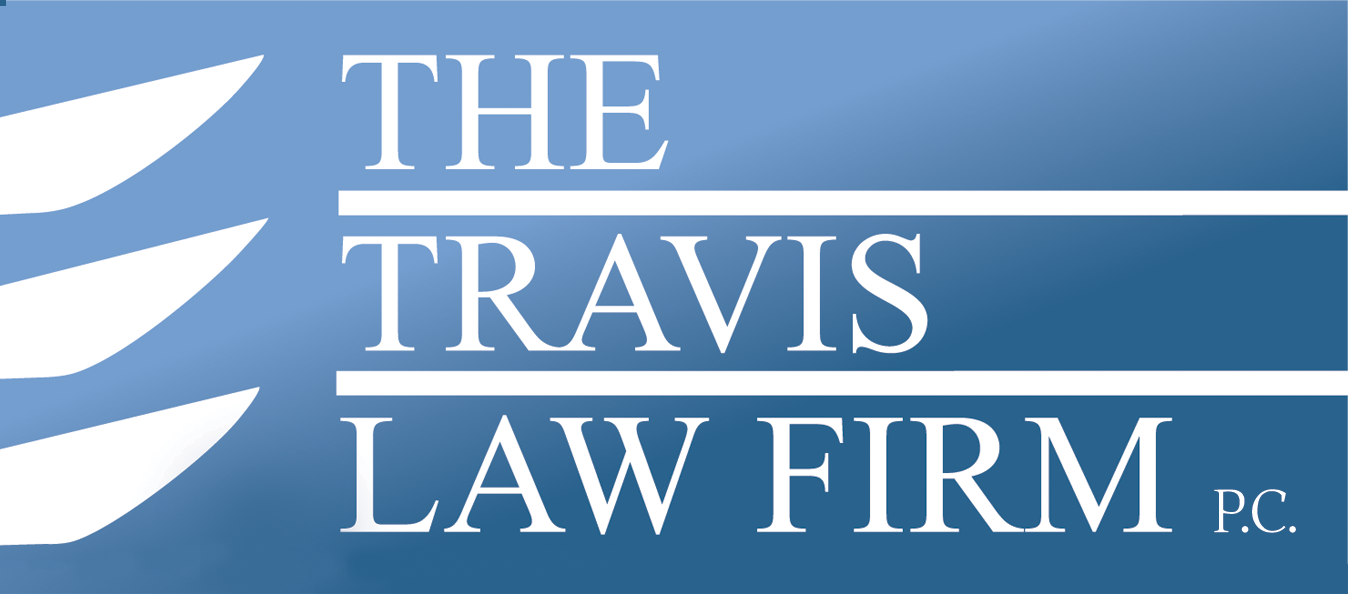TOP WORKERS' COMPENSATION LAWYERS ERIE PA| THE TRAVIS LAW FIRM
Serving Erie, Edinboro, Crawford and rest of Northwestern PA
You may be eligible for compensation if you are temporarily unable to work, hospitalized, or become permanently disabled due to work-related injuries.
Workers’ compensation provides money and medical benefits to an employee who suffers an on-the-job accident, injury, or occupational disease. Workers’ compensation laws are designed to protect workers and their dependents against the burden of a serious injury in the workplace. Workers’ compensation can include payments in lieu of wages, compensation for economic loss (past and future), reimbursement or payment of medical and like expenses and benefits payable to the dependents of workers killed during employment.
You should be familiar with Pennsylvania workers’ compensation laws and your job’s work-related injuries procedure. The workers’ compensation lawyers at The Travis Law Firm’s Erie, Edinboro, and Warren law offices can help you make sure the proper steps are followed and that your legal rights are upheld. Covered medical care generally includes:
- Medical, surgical and hospital services
- Dental services
- Chiropractic treatment
- Physical therapy
- Nursing care
- Prescribed medications
- Crutches, hearing aids, etc.
Workers’ Compensation Laws
Workers’ compensation laws were enacted to eliminate the need for injured workers to prove their injuries were the employer’s fault and to make the litigation process less costly for both sides. Maryland (1902) was the first state to enact workers’ compensation laws. By 1949, all states had created some kind of compensation for work-related injuries.
In the United States, most employees who suffer work-related injuries have a right to medical care. In many cases, monetary payments compensate for any injuries resulting in temporary or permanent disabilities. Laws require most employers to carry workers’ compensation insurance. Heavy financial penalties may be imposed on employers who do not carry insurance. Nearly every Pennsylvania worker is covered by the Pennsylvania Workers’ Compensation Act. Employers must provide workers’ compensation coverage for all of their employees, including seasonal and part-time workers. Non-profit corporations, unincorporated businesses, and even employers with only one employee, must comply with the Act’s requirements.
Additional compensation laws are available for: federal civilian employees, railroad workers, longshoremen, shipyard, and harbor workers. Some others who may not be covered are volunteer workers, agricultural laborers, casual employees, domestics and employees who have been granted a personal religious exemption from the Act.
The Workers’ Compensation Process
- Notify your employer of your injury – If not reported within 120 days of injury or having knowledge of a work-related disease, no compensation is allowed.
- The employers are required to immediately report employee injuries to their insurer or to the person responsible for managing the workers’ compensation program.
- a) Within 21 days from the date the employer receives notification of injury, the employer/carrier accepts liability for the injury – a Notice of Compensation Payable or a Notice of Temporary Compensation Payable.
- or –
b)Within 21 days from the date the employer received notification of injury, the employer/carrier denies liability and issues a Notice of Workers’ Compensation Denial to the employee. - (if 3b) The employee has three years to file a Claim Petition.
- Workers’ compensation petitions are normally assigned to a Workers’ Compensation Judge.
- All parties involved are notified of the date, time, and place of the Workers’ Compensation Hearing. The judge will hear evidence from both the claimant and employer.
- A decision is rendered.After the judge circulates the decision, an appeals process may begin (Workers’ Compensation Appeal Board, Commonwealth Court, Pennsylvania Supreme Court).

You may be entitled to workers' compensation if you have suffered work-related injuries, illness, or disease. Compensation is not paid if the injury is intentional or caused by an employee's violation of the law (including the use of illegal drugs). Work-related injuries or deaths caused by intoxication may not be covered by workers' compensation. Contact our lawyers at our Erie, Edinboro, and Warren Pennsylvania offices and arrange a consultation with our workers' compensation attorneys.
Millions of Americans are injured on the job or diagnosed with a work-related illness or condition each. During the last decade, over 2.5 million workplace injuries were reported each year in the private sector.
If you have been injured at work, you may qualify for benefits under Pennsylvania's Workers' Compensation Act. However, the compensation you receive for a worker's compensation claim is not the same compensation you receive for a personal injury claim against another party.
If you are injured at work or while performing your ordinary work duties, you may receive compensation from your employer's workers' compensation insurance carrier.
The workers' comp system is a no-fault system. Therefore, you are not required to prove that your employer was responsible for causing your injury or that the employer was negligent or careless. You only need to show that your injury occurred during the ordinary course of your employment, and you did not intentionally cause yourself to be injured.
You can be partially or wholly at fault for the cause of your injury and still receive workers' compensation benefits as long as you did not intentionally cause the injury.
Benefits that you may receive under PA's workers' compensation system include:
- Medical Treatment - Injured workers are entitled to receive reasonable and necessary medical treatment for their injuries at no charge to the employee.
- Income Benefits - Income replacement benefits equal approximately two-thirds of the employee's average weekly wage. The term of the income benefits depends on the severity of your injury and whether you can work or you are permanently disabled.
- Death Benefits - An employee's dependents may be entitled to compensation for funeral expenses and financial losses for a work-related fatality.
- Specific Loss Benefits - Specific loss benefits apply when an employee loses a limb or loses the use of a specific body part.
Receiving your workers' comp benefits should be a simple process. You are injured at work, go to the doctor, file a claim, and receive benefits. However, the process is not always simple. You are dealing with an insurance company. Therefore, the process can be more complicated than is necessary. The insurance provider may deny your claim, miscalculate your average weekly wage, or deny you certain benefits that you should receive.
If your workers' comp claim is denied or you believe you are entitled to additional benefits or higher sums, contact an Erie workers' compensation attorney immediately to discuss your legal rights after being injured at work.
Things to Consider When Deciding Whether or Not You Need an Attorney:
- The legalities of the Pennsylvania Workers’ Compensation and Social Security disability systems are very complex. Our attorneys are qualified and experienced. We can help level the playing field as you seek maximum compensation for your work-related injuries or disabilities.
- Statistics consistently show that settlements are higher when you have an attorney working for you.
- You cannot trust your employer or insurance company to look out for your best interests. Their goal is to provide the absolute minimum benefits possible on each claim. Your employer and insurance company already have lawyers working for them, and they know far more about the Pennsylvania Workers’ Compensation System than you do.
We Will:
- Gather evidence, interview witnesses, and research your case
- Make sure that all papers are properly filed with the court or agency
- Keep you informed of the status of your case
- Ensure that you receive all the benefits to which you are entitled.

Below is just a sample of what type of Occupational Diseases that are included:
- HIV/AIDS
- Asthma
- Lead Poisoning
- Mesothelioma
- Hepatitis
- Hearing Loss
- Lung Disease
- Latex Allergy
- Dermatitis
- Contact with Hazardous Materials
- Asbestosis
- Breathing Issues
Benefits that you may receive under PA’s workers’ compensation system include:
- Medical Treatment — Injured workers are entitled to receive reasonable and necessary medical treatment for their injuries at no charge to the employee.
- Income Benefits — Income replacement benefits equal approximately two-thirds of the employee’s average weekly wage. The term of the income benefits depends on the severity of your injury and whether you can work or you are permanently disabled.
- Death Benefits — An employee’s dependents may be entitled to compensation for funeral expenses and financial losses for a work-related fatality.
- Specific Loss Benefits — Specific loss benefits apply when an employee loses a limb or loses the use of a specific body part.
Receiving your workers’ comp benefits should be a simple process. You are injured at work, go to the doctor, file a claim, and receive benefits. However, the process is not always simple. You are dealing with an insurance company. Therefore, the process can be more complicated than is necessary. The insurance provider may deny your claim, miscalculate your average weekly wage, or deny you certain benefits that you should receive.
If your workers’ comp claim is denied or you believe you are entitled to additional benefits or higher sums, contact an Erie workers’ compensation attorney immediately to discuss your legal rights after being injured at work.
You Cannot Sue Your Employer for Damages
The workers’ compensation laws prevent an employee from suing an employer for work-related injuries except in specific cases. Employers are protected from lawsuits by injured employees by providing workers’ compensation coverage.
However, if the employer intentionally injuries an employee or is grossly negligent, the employee might have the right to sue. Also, if a third party causes the employee’s injury, the employee may have a personal injury claim against the third party. A third-party lawsuit can result in additional compensation for the employee, such as full compensation for lost income and compensation for pain and suffering damages.
Contact Our Workers' Compensation Lawyers
If you have suffered a work-related injury or disease, contact the Travis Law Firm today. We can help if you have been denied compensation, are in danger of having your workers’ compensation benefits taken away, or are still hurt and your employer is demanding that you return to work. Our trustworthy legal team represents victims of work-related injuries and our workers’ compensation lawyers will fight for maximum compensation.
Erie, PA Wrongful Death Attorney | Fatal Crash Claims
Why Rural Roads in Erie, PA Lead to More Fatal Crashes Losing a loved one in a sudden accident is one of the most difficult experiences anyone can face. If…
Do I Really Need a Car Accident Attorney After a Minor Crash?
If you were recently involved in what seemed like a minor car accident in Warren, PA, you might be wondering: Do I really need a car accident attorney? After all,…
How the Commonwealth v. Shifflett Ruling Enhances DUI Defense in Pennsylvania
Facing a DUI charge in Pennsylvania? The Pennsylvania Supreme Court’s ruling in Commonwealth v. Shifflett (May 30, 2025) has transformed DUI defense for drivers with prior ARD (Accelerated Rehabilitative Disposition)…
FREE CASE REVIEW
ERIE'S
GO-TO LAW FIRM
Contact our experienced local attorneys to get the aggressive legal help you need.
- Personal Injury Cases
- DUI Defense Cases
- Criminal Defense Cases
5 STAR REVIEWS
Amy M.
"I would Highly recommend Attorney Travis. He and his staff very friendly and professional. I was quite concerned over my case, Attorney Travis took the time to explain everything to me and made me feel confident he could help me. Everything worked out great. I really appreciate his personal and professional help."
Dustin S.
"Highly recommend Grant Travis and his staff. The best decision I’ve ever made was to hire him to represent my case. The knowledge and professionalism of Grant and his staff is top notch! You will not go wrong chosing him to represent you! Thanks again Grant!!"



